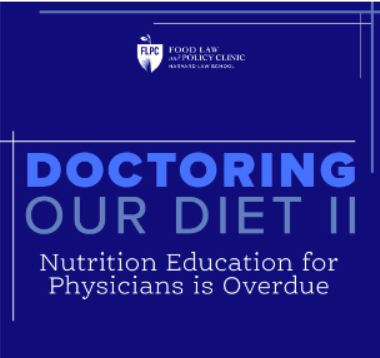By Stephen Devries & Emily Broad Leib, originally published in The American Journal of Clinical Nutrition on July 25, 2024.
Patients are typically unaware of the specifics of medical education but trust that their physician has received adequate training to address their health needs. Commitment to fulfillment of the public trust has been affirmed as the guiding principle of leaders in medical education [1]. But when it comes to nutrition, how justified are patients in their trust that physicians will have the knowledge to counsel them and make appropriate referrals? Poor quality diet is the leading risk factor for death in the United States [2]. Yet, surveys of medical students, graduate medical trainees, and practicing physicians consistently report insufficient nutrition training and a uniformly low level of confidence to meaningfully discuss nutrition with their patients [[3], [4], [5], [6]].
The deficiency of nutrition education in medical training has been recognized for several decades. Although several notable new nutrition education initiatives and curricula have emerged, they are relatively few, typically offered exclusively as elective experiences to only a handful of students, and largely supported by fragile funding sources [7]. In this setting, the 2023 Nutrition Education Summit was organized by the Accreditation Council for Graduate Medical Education (ACGME) in collaboration with the American Association of Colleges of Osteopathic Medicine, and the Association of American Medical Colleges (AAMC) and is the subject of the Summit report published in this issue of the American Journal of Clinical Nutrition [8].
Read the full article here.
Relevant FLPC Resource



